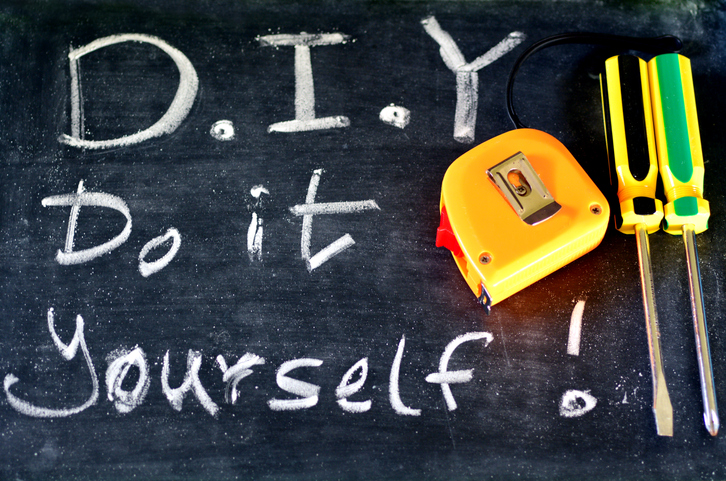
By Nancy Stramm
Bonus? Never worry about a toilet paper shortage again.
With COVID-19 forcing us to spend time at home, do-it-yourself projects are on the rise. If you’re looking for your own to tackle, here are five easy and affordable ones that create a safer and more accessible environment in your home for family and loved ones.
Place a bench, shelf or small table outside your front door. This spot frees your hands by holding purses, briefcases and packages while fumbling for keys, unlocking doors and navigating through the doorway — especially useful with anxious pets or children waiting in your direct path for you to come inside.
It can also serve as a drop off point for deliveries while practicing social distancing, or a holding area for items that need cleaning or disinfecting prior to bringing them into your home.
With a bench, you can sit to remove shoes and boots to prevent bringing in unwanted dirt or germs. Besides functionality and safety, any one of these items can add a point of visual interest to spruce up the exterior of your home.
Can you see where you are going on pathways to and from your house? If not, improve the lighting. Low-cost motion sensor lights are easy to install and readily available at local hardware and home improvement stores. These are excellent for entryways, garages, driveways or anywhere needing extra light.
Solar lights along sidewalks and pathways will automatically turn on at dusk, and can be as simple to install as pushing them into the ground. They work for steps and decking, too.
An oft-overlooked lighting feature includes illuminating house numbers. Increasing intentional lighting here can emphasize a fun and decorative element while making it easy to identify your address for deliveries and first responders in an emergency.
Remove or secure floor rugs to reduce fall and trip hazards. Place rug grip or rug tape on the underside of rugs to increase traction and keep them securely in place. Take the rug out and eliminate the risk of tripping or falling over it altogether.
This is one of the easiest ways to improve your home's safety at little to no cost to you.
Add no-touch or decreased-touch alternatives for greater accessibility. No-touch faucets and soap dispensers, for example, are easier to reach without bending forward too far. Rocker light switches can be operated from the back of your hand or elbow; easier for children and aging family members with diminished dexterity.
Want sound or motion activation? Most regular switches will accommodate adaptors.
If you’re interested in going high tech, a whole-house system controls lights, temperature, security system and other features with the touch of a button from your phone, computer or a remote. You can even activate it while you are away, leaving or returning home.
Convert your commode into a bidet. How? By replacing the existing toilet seat. Bidets have programmable wash and heat settings for improved cleanliness and hygiene.
They also increase the safety and independence for people with limitations — for example, lack of a range of motion from surgery, balance/coordination issues, or an injury or illness.
Bonus? Never worry about a toilet paper shortage again.

These simple home improvement hacks can add value, reduce hazards, increase your quality of life and make features more accessible for those with special needs. Now is the perfect time to add them to your list and knock them off.